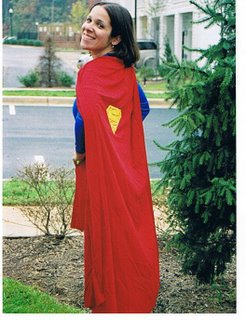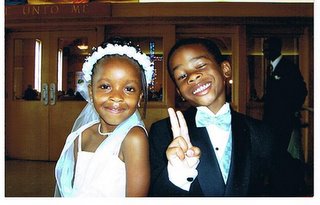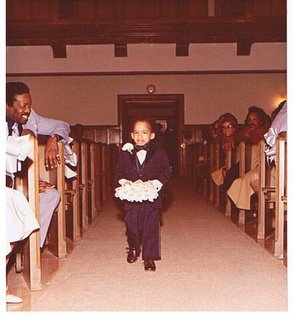Of late I've had more than one conversation about what it means to truly know another person. I received an email this morning which mentioned the issue. And I had a sort of pseudo-epiphany about the topic within the past few weeks. So, I guess that means the topic deserves a post. Here goes.
I suspect that one of the fundamental purposes for human existence is knowing another. Some wise Christian wrote that man's purpose is to "know God and enjoy Him forever." I think I agree. But what does it mean to know another human being? And does this knowing, this communion with another person(s) enable us to know God more fully? For me, the latter question seems easier to answer. I think the answer is "yes". Humans are social creatures; we can only know ourselves in relation to others. And how can one even
begin to know God if he doesn't have an inkling about himself?
But back to knowing another human being. I spoke about this concept a couple of weeks ago to a friend. He expressed doubt as to whether he really
knew his girlfriend, despite having been with her for years. I said, "You can't know everything about another person. Even after a lifetime, you still wouldn't know everything. And I'm not sure you'd want to. You'd want to still be discovering something."
Who can know me fully? Who would
want to know me fully? What does knowing someone fully really mean?
I like to imagine that life-partners (what traditional religious folk call "spouses") come closest to knowing each other fully. I suspect a good mother can know her child fully, for a time at least. But in terms of adulthood, life-partners come closest to knowing each other fully. They share their thoughts, ideas, living space, bodies.
When a man knows a woman he is [becoming?] familiar with what CDs she owns, her spending habits, whether or not she likes tomatoes. He has some sort of understanding as to whether she is willing to kill big spiders, or hunt them down, and then do the whole "catch and release" thing. He grows acquainted with the smell of her hair (washed and unwashed), see how she flosses (or doesn't), and has a clue whether she likes to talk during. At some point it becomes clear to him whether she'll tolerate cigarette smoke, and whether she'll tolerate people who say unkind things about Arabs. He learns if she's a person who asks "Do I look fat?" or asks the more sophisticated (and dangerous) "Can you tell I've gained weight?" *FYI guys, those are the same damn question. Don't be a fool.*
But after knowing all those tidbits, and thousands of others, can the man rest assured that he knows her fully? Nope. Two reasons come to mind immediately. 1) She's a human being and human beings are very, very complex. 2) If she's a healthy person, she's continually growing and changing, and what may have been true six months or a year ago, may be obsolete info today. Oh look, I just though of another one ... 3) If
he's a healthy person, he's continually growing and changing, and this will by necessity change at least
some of his perceptions of her.
So where does this leave us? The life-partners, the two who can fully know each other, and hopefully experience the "mystical oneness" I mentioned a few posts back ... should they be discouraged? Eyes downcast? Weary? Anxious about possible missteps? No!
*slap*
Did you not catch the name of this blog? This leaves us with
hopeful expectation. We can look forward to a never ending process of getting to know another. In so doing, we ourselves are pruned. Shaped and made stronger. More able to have meaningful relationships with ourselves, and with God.
I think this phenomenon exists in all healthy human relationships. I believe the relationship between partners is where it is most clearly observed, and in its most acute form.






